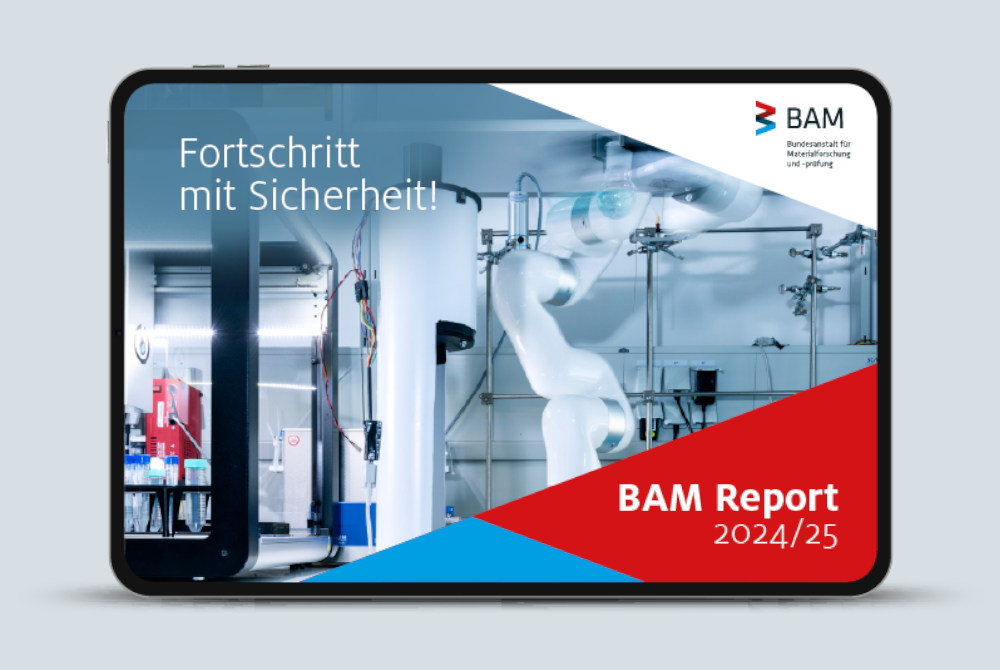
The new BAM Report shows in around 60 pages how BAM, as a federal research organization, contributes to “progress with safety”.
Source: BAM
The BAM Report 2024/25, the annual publication of the Federal Institute for Materials Research and Testing (BAM), has been published. Under the title “Progress with Safety!”, the digital publication shows how BAM, as a federal research institution, contributes its scientific expertise to the safe design of technological innovations – together with partners from industry, science, and politics.
Whether it's the energy transition, digital transformation, or climate-friendly construction – progress is more urgent than ever today, but it is also more complex and therefore more susceptible to undesirable developments. Safety, quality, and reliability must be considered from the outset.
“With scientifically sound testing methods, reliable standards, active knowledge and technology transfer, and international networking, we drive innovation forward—and secure it at the same time,” emphasizes BAM President Prof. Dr. Ulrich Panne in the editorial.
The report is structured around five overarching topics: energy, infrastructure, environment, materials, and chemistry and process technology. The focus is on practical projects that have a direct impact on the economy and society. The international transfer of knowledge and technology is also highlighted, for example through strategic partnerships and participation in EU projects.
For example, BAM is researching how titanium-iron alloys from recycling processes can be used as safe and efficient storage materials for hydrogen – an important step towards establishing a hydrogen economy. Another project is looking at how the service life of wind turbines can be extended using a digital tool without compromising safety.
BAM is also pursuing concrete approaches for the use of simulation models that can make 3D printing in the construction sector more efficient. And the use of artificial intelligence and data-based processes is opening up new ways to accelerate the development of new materials.
The new BAM Report is available exclusively in digital form—as an interactive e-magazine and accessible PDF—in German and English. It is aimed at specialists and managers as well as interested citizens.
Now available at: https://www.bam.de/bam-report-en


